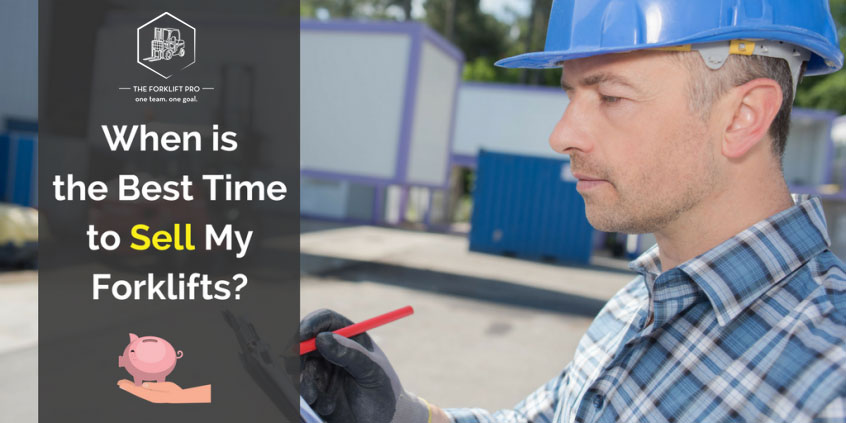There isn’t one right, wrong, or uniform answer to this question. The decision to sell your forklifts is usually motivated by multiple factors. Selling your forklifts must be met with the same careful consideration as investing in them.
The Forklift Pro helps dealers get the most out of their used forklifts. Here are some common reasons to consider selling your forklifts.
Changes in Production
When economic factors shift to favor a downturn, many businesses may look to reduce their forklift fleet. On the other hand, some businesses may also upgrade and increase their fleet to meet production needs.
U.S. manufacturing is forecast to increase 2.8% overall in 2018, which means many companies will be seeking material handling solutions to fit a growing economy. If your fleet is no longer capable of keeping up with your business needs, it might be time to consider selling and/or upgrading to slightly newer models.
Technology Upgrades
There isn’t a one-size-fits-all forklift type, even with the vast technological advancements happening in the industry today. As forklift automation and other features continue to grow, dealers all over the globe are considering exploring new technologies to improve their material handling efforts.
It might be time to assess whether or not these new technologies are worth exploring and if it’s time to retire your current forklift fleet.
Wear & Tear
Forklifts are designed to be durable machines, but even the toughest lifts have their limits. Most forklifts (if handled properly) will last for approximately 20,000 to 30,000 hours. Having properly trained forklift operators helps significantly reduce excessive wear and tear on a forklift.
You want to sell your forklift before the wear and tear becomes irreparable damage. Many business owners examine their selling options when maintenance costs are outweighing the value of the forklift, or it is becoming increasingly harder to find parts. Selling your forklift while it still has value can help you recoup your initial investment costs and, if the lift is paid off, can also help with your next material handling investment.

Excessive Maintenance
Tracking fleet maintenance is incredibly important when it comes to assessing how to move forward with maintaining or selling a piece of material handling equipment. One way to determine excessive maintenance on your forklift is to evaluate how often it is worked on (excluding preventative maintenance). Even if you haven’t necessarily made major repairs, the “nickel and dime” repairs start to add up in the later part of a forklift’s life.
Machine downtime means loss of work and productivity. If the forklift is out of commission more than it is operating, you will want to consider selling it.
The Forklift Pro Process
The Forklift Pro provides accurate and fair market evaluations and offers to our sellers. With over 100 years of combined buying experience, we help sellers get the best price for their used forklifts. Whether you are selling one or 50 forklifts, we can conquer difficult logistical challenges in order to make the sale process even simpler for you.
Our team is standing by to help you achieve your material handling selling needs. We make logistics simple and funding deals even simpler. Talk to one of our sales professionals today.

